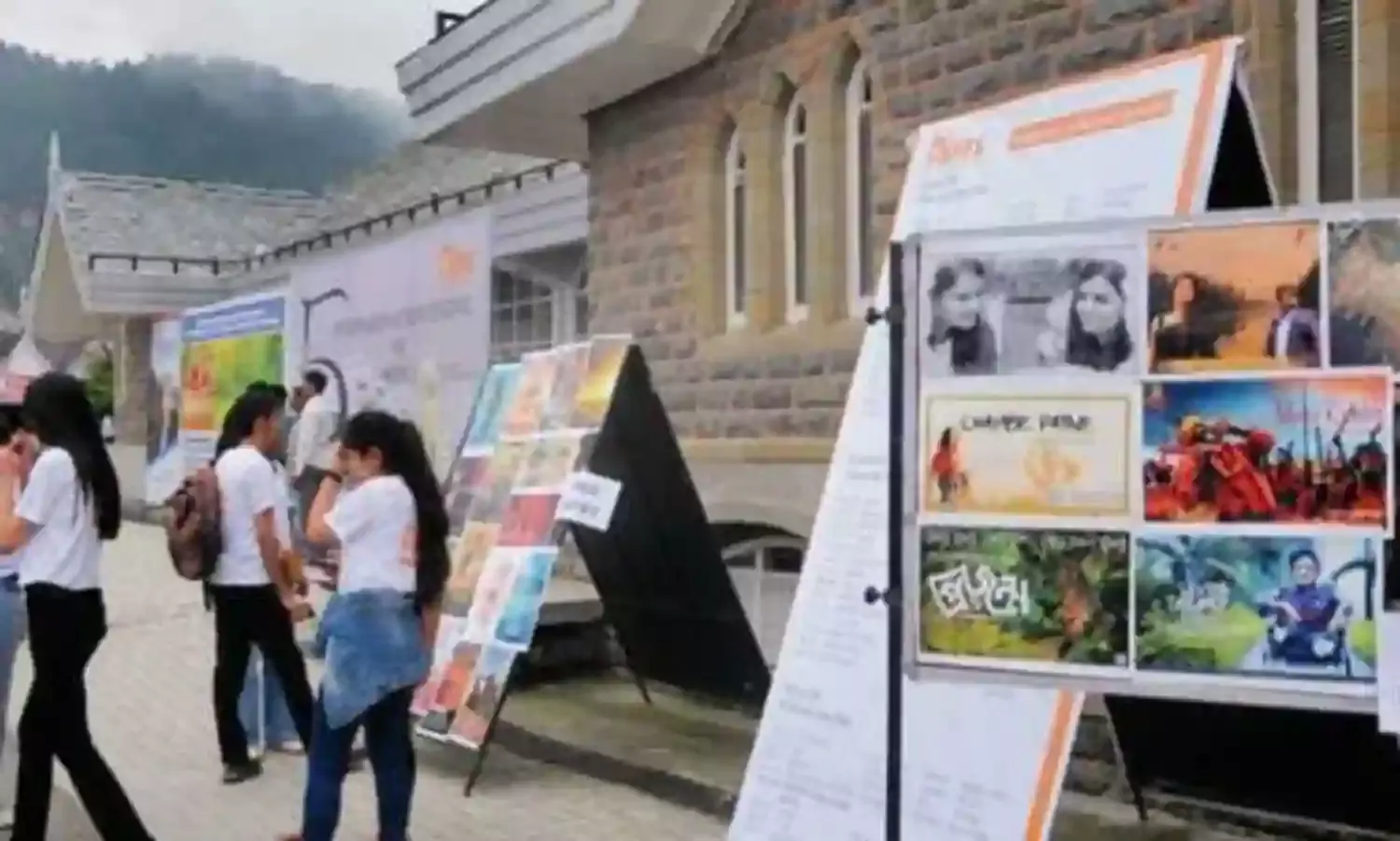Some Intense Cinema at the Shimla Film Festival
Memorable films

The strength of films as a medium reflecting society and its changes was on full display at the Seventh International Film Festival of Shimla that concluded on Sunday evening. Some of the screenings were very intense and carried strong messages on the tumultuous times we are witnessing.
Many were made by little-known directors who struggle a lot to bring them into the public domain. They tackled themes ranging from patriarchy to class barriers to menstrual health, to mental challenges and environmental issues faced by different sections of society.
One such film was ‘Red’ by Dr Sumeet Patil. Set in a municipal school for children with mental disabilities in Mumbai, it revolves around the colour red and its role in an individual’s life. When the protagonist Sayali who has a mental disability starts to menstruate, she develops a fear of the colour red and cannot accept anything that is red in her life.
The film talks about how when girls like Sayali reach adulthood their uterus is removed, making them incapable of conceiving. It questions the practice.
Then there was the film ‘A Man and His Shoes’, portraying the turmoil and travails of a schoolteacher whose shoes go missing from his residential quarters one fine morning. He is compelled to retrieve a pair of torn shoes from the garbage so he can attend school. Gripped by an inferiority complex, he persists in thinking that his students are making fun of his torn shoes.
Made by a local, Abhishek Sharma, the film easily conveys how small things make a big difference to one’s frame of mind, and can leave us shattered.
‘Chammach - The Spoon’ was another short film that made a mark. It talks about how people are trapped in the mindset of class or caste. It begins with a lady who has kept a different set of spoons for the use of the house help and others from a lowered class. Through her interactions with a local grocery delivery boy she understands how caged she is inside her class consciousness.
The film made by Arunansh Bhatt from Lucknow conveys with ease how much better life can be for individuals if they are able to break the shackles of class.
Environment and ecology was another subject that the films screened at the event dealt with. ‘Shoot That Leopard’ by Sohail and Shabnam Jafri was a very topical film as it dealt with the continuing man-leopard conflict that is reported with increasing frequency in both Himachal Pradesh and Uttarakhand.
The film revolves around two persons, Ashwani Kumar, a government employee in Shimla who has been shooting the wildcat with a camera while spreading awareness about it, and Lakhpat Singh Rawat who is the official shooter in Uttarakhand assigned to shoot man-eating leopards.
Both are passionate about saving leopards. Kumar goes around educating people on how to evade conflict with the wildcats whose habitat and prey they are constantly taking over. Rawat on the other hand is always concerned about shooting any innocent wildcat who is not a maneater. The film tries to get into the psyche of humans and leopards, while raising the all-important question of the solution to this critical conflict.
It points to the model of the Sanjay Gandhi National Park in Mumbai, where the two species have been living in harmony in close proximity to each other.
Shimla town witnessed a series of protests earlier this month when a five year old child was reportedly killed by a leopard.
‘Trees in Dreams’ was yet another film dealing with the subject of the environment. This Malayalam film by Sohan Lal revolves around a nine year old boy, Adam, who is weak in his studies and is diagnosed with ADHD, or attention-deficit / hyperactivity disorder. It is his teacher who motivates him to participate in a painting competition on the theme of the environment. Adam sets off on a journey to a forest where he meets an angel in a dream..
Patriarchy and how it is experienced in different forms was a subject dealt with in some engrossing films. There was this film ‘Co-Husband’ from Nepal that explores the custom of polyandry prevalent in some mountain regions of Nepal. It depicts how brothers from a community, no matter how many they are, marry the same woman in the Humla district. The film is made by Ganesh Panday.
‘Jhat Aayi Basant’ (An Early Spring) by Pramati Anand deals with the stories of two girls Sonia and Anu who come from contrasting sociocultural backgrounds. The only thing they have in common is in being compelled to deal with the pressures of patriarchy coming through their mothers, knowingly or unknowingly. The film questions what prevents the previous generation of women from supporting the next generation.
‘Period Virus’ was a movie about the confusion of a seven year old boy who fails to understand why his mother is not allowed to enter his aunt’s house, and why even he is not allowed to touch her. Shot in the Banjar valley of Himachal Pradesh, the film discusses the taboos associated with periods.
As Covid-19 and especially the lockdowns associated with it have left society devastated over the last two years, filmmakers too have been trying to capture different facets of these times.
One such film that was screened was ‘Life in a Lockdown’, which revolves around a struggling artist whose life becomes miserable on all fronts when covid breaks out. Hit financially as well as psychologically, he eventually ends his life. The film by Nishant Atwal makes one recall all the suicides reported during the lockdowns because of various reasons.
Apart from screenings at the historic Gaiety Theatre in Shimla, the films were also shown at the Model Central Jail at Kanda, with the aim of bridging the gap between the inside and outside world of the prisoners through cinema, and nurturing their creativity.



